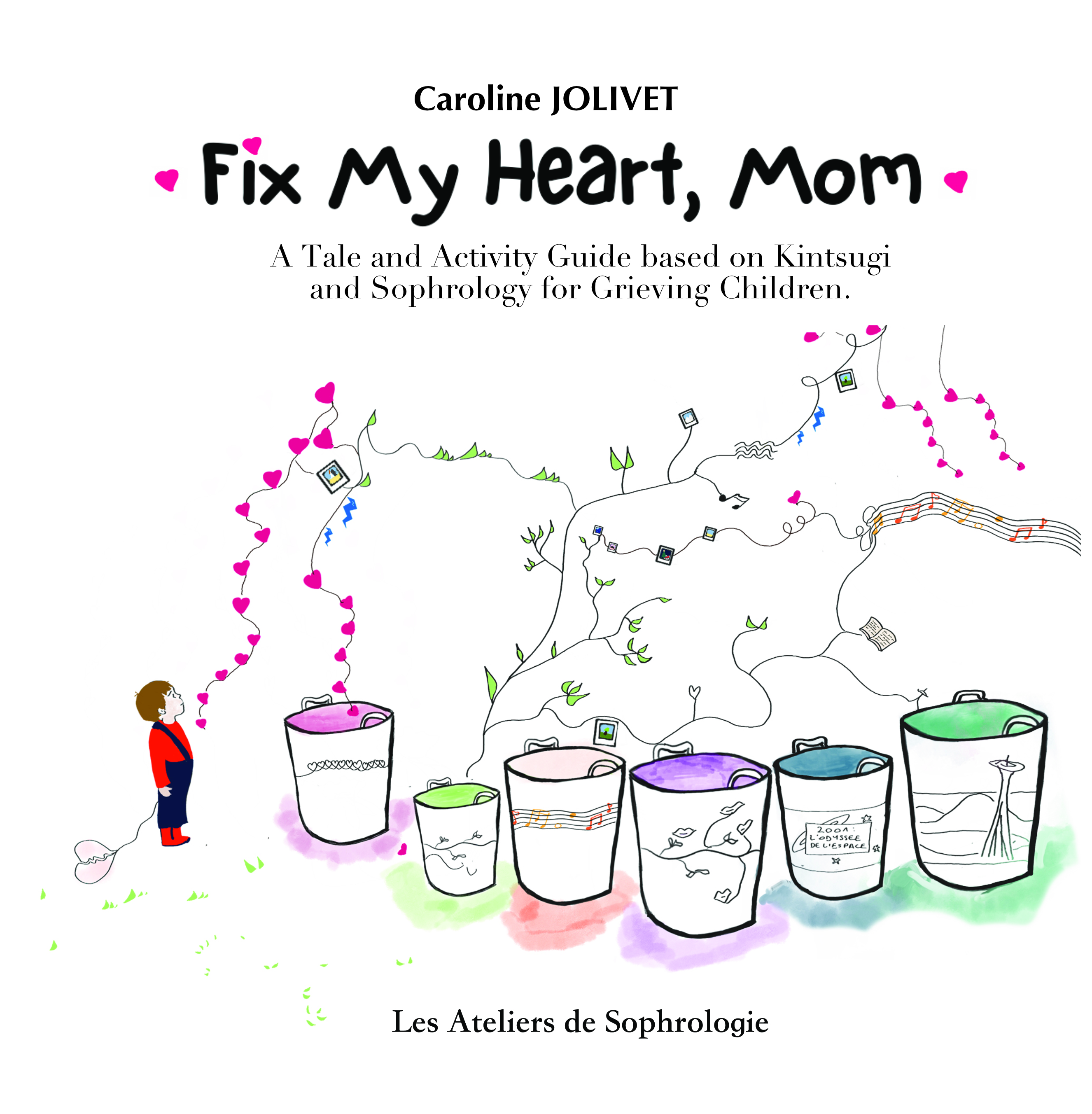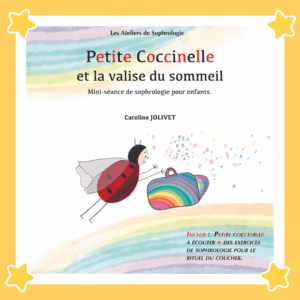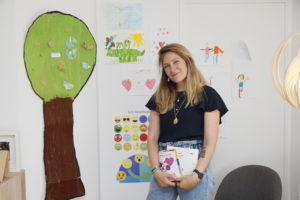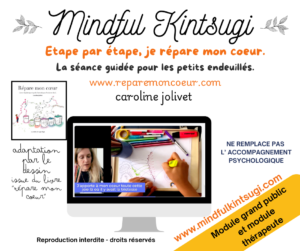In English
How to relieve the pain of children coping with loss? How to help them identify their emotions and feel secure talking about the one they miss so dearly?
Sam is a big boy in Kindergarten. Since he has lost his father, he has tried many things to fix his broken heart and is now willing to share his story with other kids who feel like their heart will never get fixed. “Fix my heart, Mom” is a tale followed by an activity guide through which parents and therapists may choose between different tools to help little ones with invisible wounds name their emotions, welcome them or let them go whenever they are too heavy to bear. You will find activities based on Kintsugi, the Japanese philosophical art as well as playful exercises of sophrology, a mindfulness technique to help ease day-to-day emotions and thoughts in the grieving process.
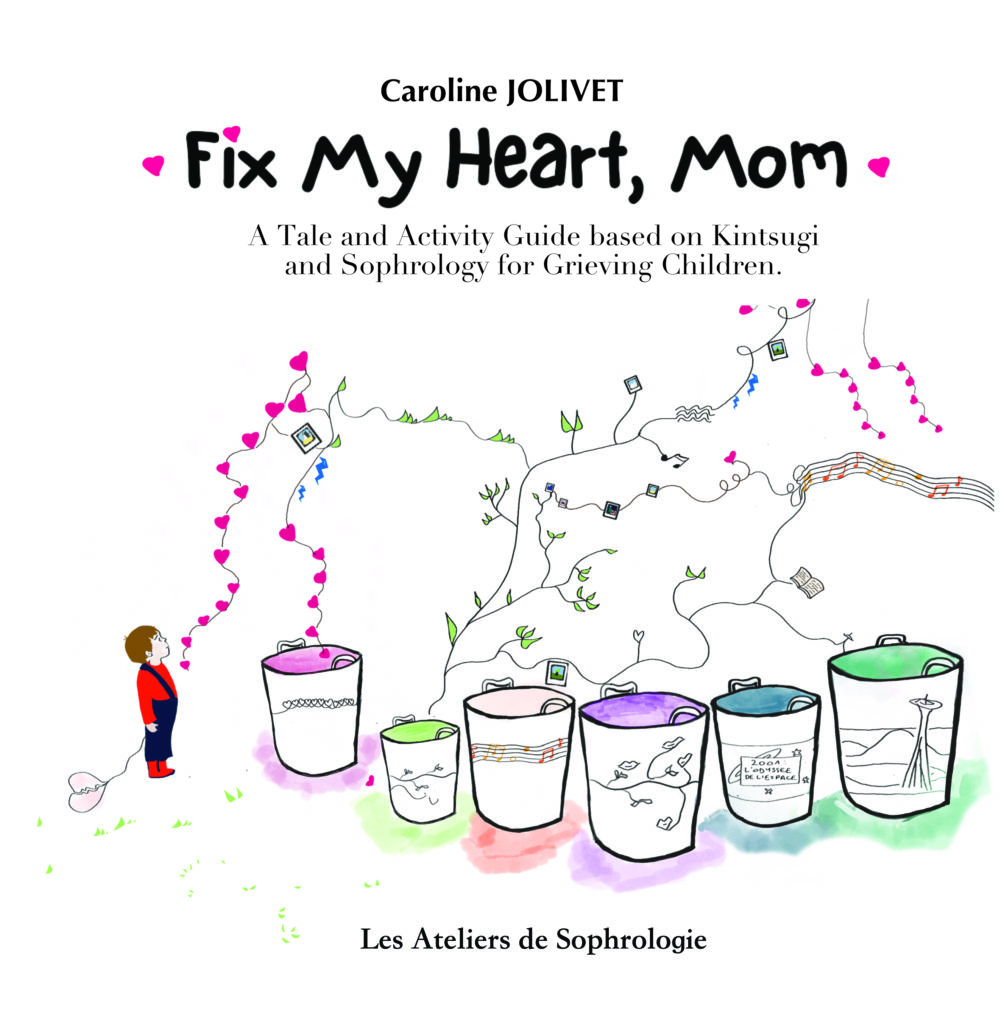
What’s Sophrology ?
Sophrology was founded in the 1960s by Alfonso Caycedo, a neuropsychiatrist eager to find a different way to heal his patients. After traveling around the world, Professor Caycedo discovered Yoga, Japanese Zen, Meditation, Qi-Qong and elaborated a new method to quiet the mind and help reduce stress with gentle body movements, breathing techniques and positive visualization.
Sophrology is well-known in Europe. Women often learn some of the breathing techniques of sophrology when in labor to relieve the pain. Sophrology is now used in a wide range of situations: sleeping disorders, stress and emotion management issues, burn-outs, chronic pains, lack of confidence or self-esteem and so on.
Here are a few examples :
- An athlete who wants to get ready for important competitions and develop stress management techniques can practice Sophrology
- A CEO who needs to feel more confident in public-speaking.
- A teenager who feels anxious and panicks during evaluations.
- An eldery woman who can’t sleep and ruminates.
- Anyone living through difficult transitions in life (divorce, grief, a change in career etc.)
Sophrologists often intervene in firms for group sessions.
During visualizations, the sophrologist helps the person connect with the present tense, reconnect with their senses and strength. They encourage self-kindness, and self-compassion and reaching a state of harmony and wellbeing.
